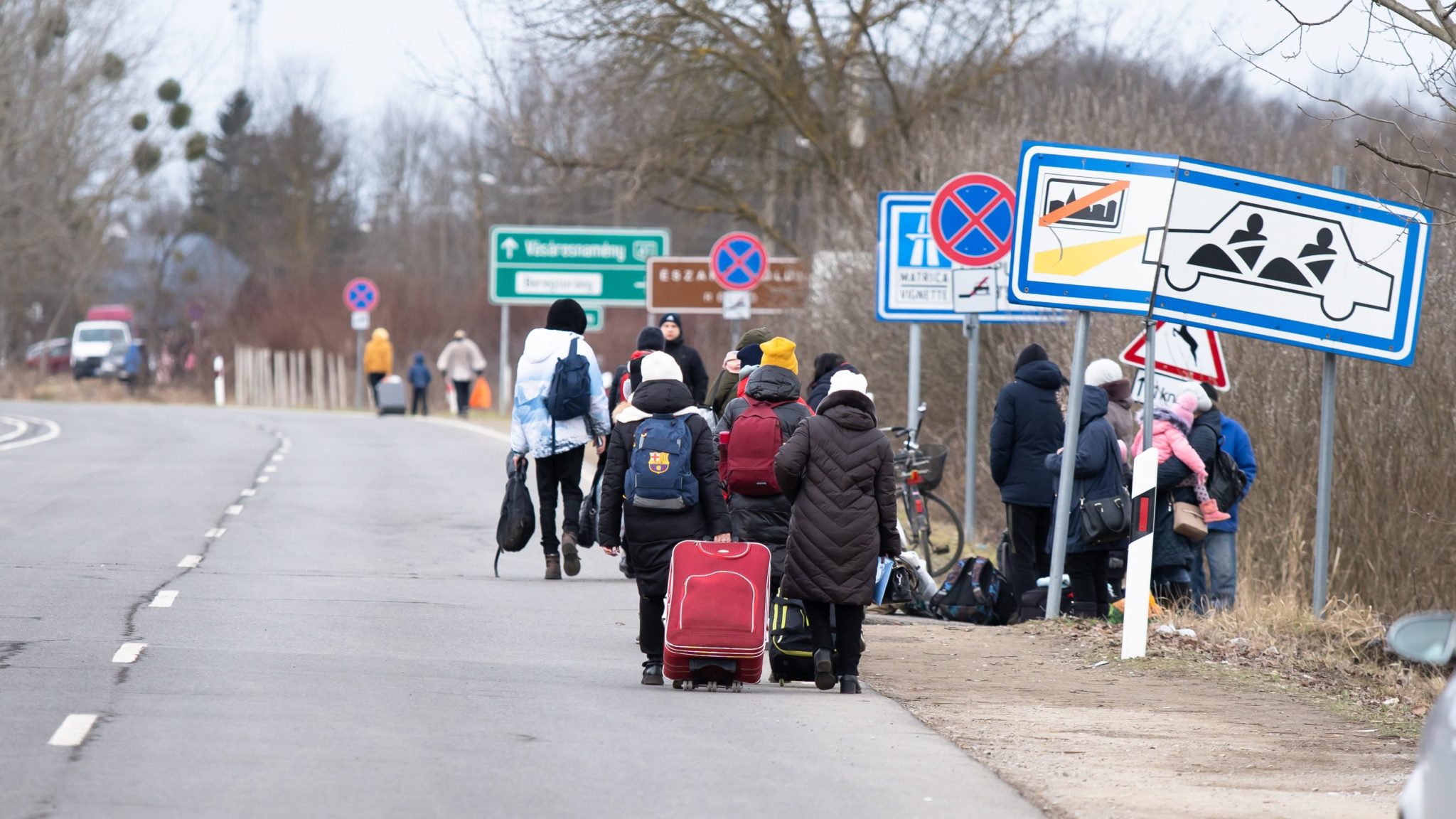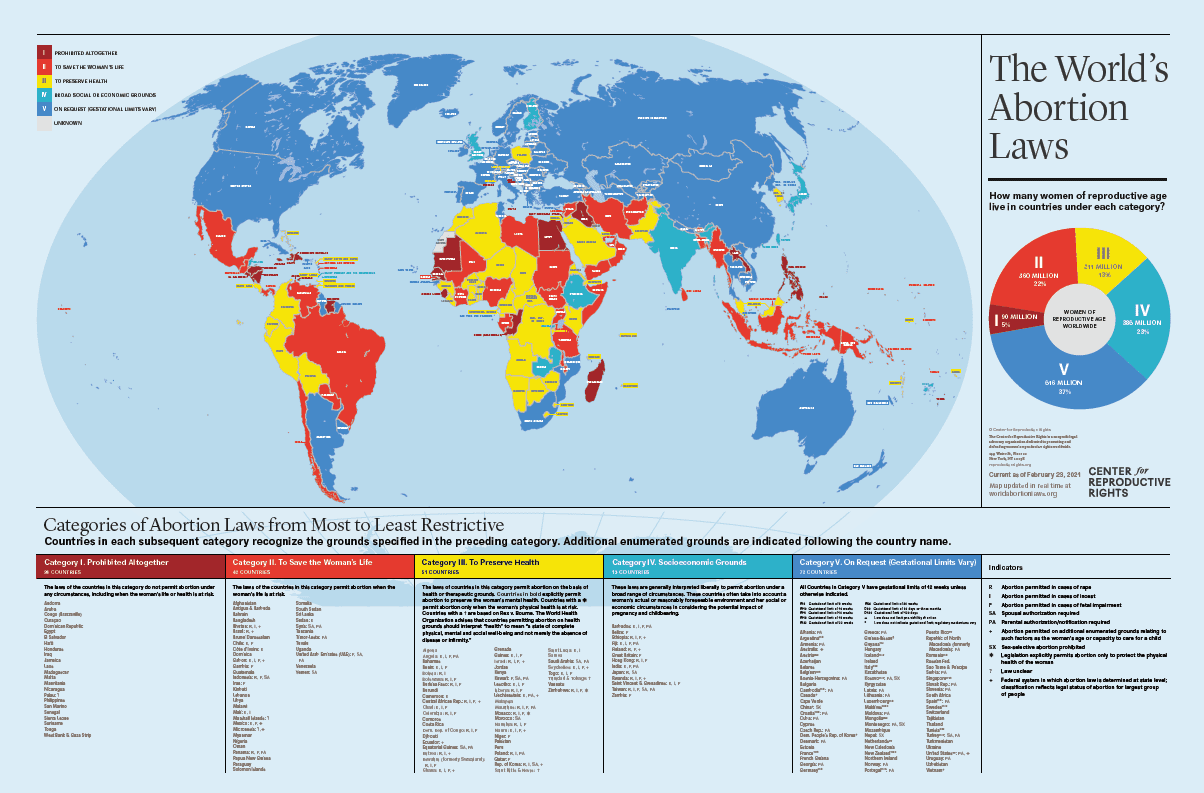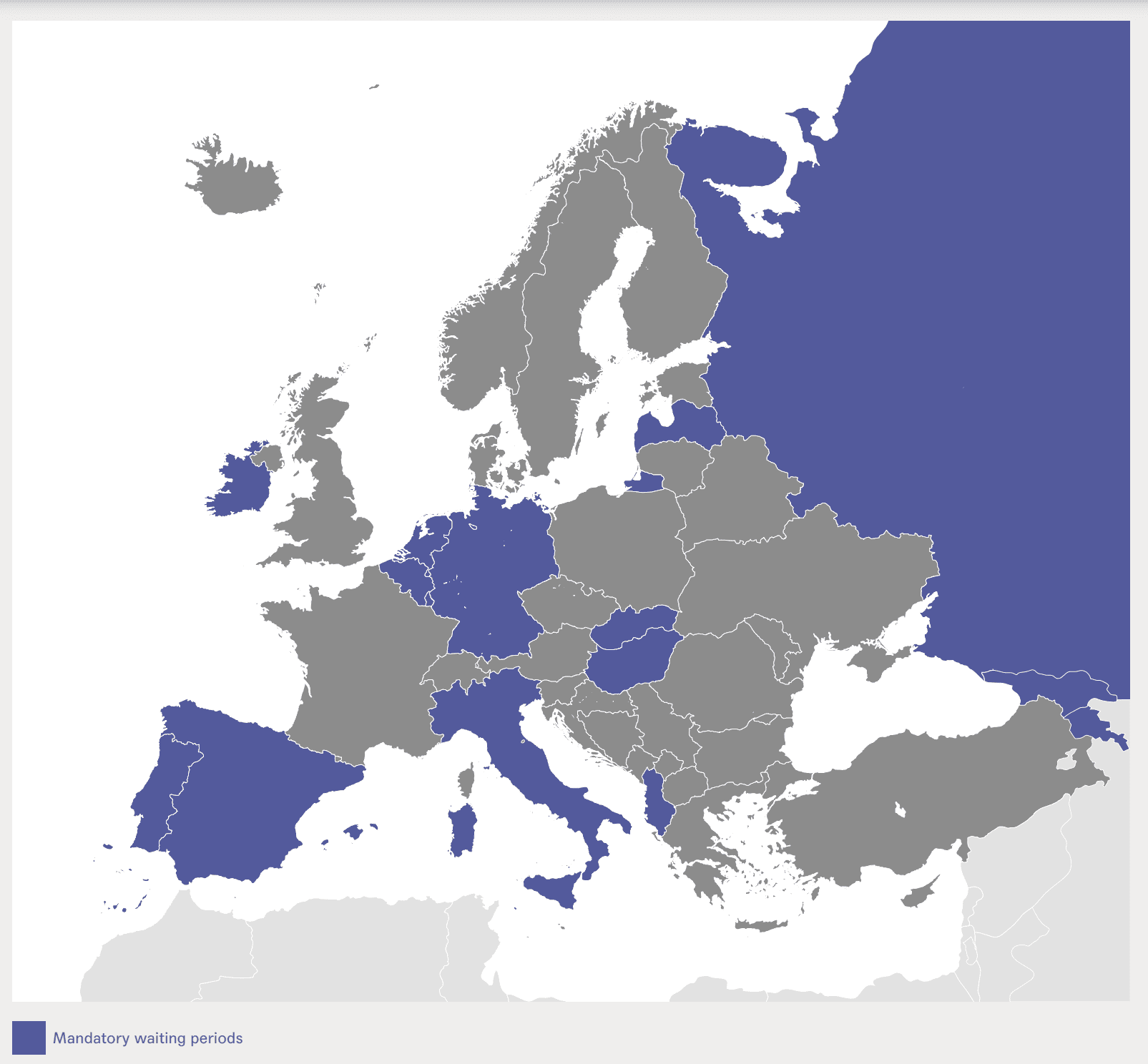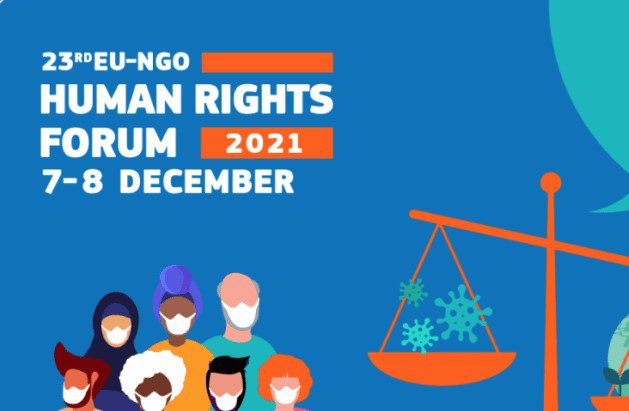Joint Initiative Addresses SRHR Needs of Women and Girls Fleeing the War in Ukraine
Center and national partners are addressing challenges and barriers in access to sexual and reproductive health care including abortion, emergency contraception, and maternal health services.

The Center for Reproductive Rights and national partners are undertaking a joint initiative aimed at addressing sexual and reproductive health and rights (SRHR) of women and girls impacted by the war in Ukraine.
The Ukraine Refugee Crisis by the Numbers
7.1 million people in Ukraine have been displaced from their homes.
6.9 million people have fled Ukraine.
4.7 million refugees are now registered across Europe.
An estimated 90% of these refugees are women and children
As of June 16, 2022.
The war has forced millions of women and girls to flee their homes, causing many to face a range of serious challenges and barriers to accessing sexual and reproductive health care. More than 90% of the approximately 4.7 million refugees are women and children.
The joint initiative is providing operational and institutional support to human rights and sexual and reproductive health and rights organizations that provide direct support and assistance to refugees.
Among other things, the initiative is identifying and addressing barriers in access to sexual and reproductive health care that are impacting refugees in Hungary, Moldova, Poland, Romania, and Slovakia. It is also addressing key challenges facing human rights defenders and sexual and reproductive rights organizations who are providing support and assistance to refugees. Participating organizations are sharing findings and recommendations with governments, international bodies, and humanitarian actors to inform their programming and response plans.
SRHR Impacts of the War and Refugee Crisis
The Sexual and Reproductive Health Care Needs of People Impacted by the War in Ukraine
The war in Ukraine is having severe consequences for the people of Ukraine and has irrevocably altered the regional landscape across Europe. For women and girls, LGBTQI+ people and other underserved populations from Ukraine, the immediate gendered impact of the conflict and resulting refugee crisis is particularly grave, and their sexual and reproductive health and rights are threatened.
Military attacks on civilian infrastructure have led to the destruction of many health facilities, including those providing maternal health. Access to emergency and time-sensitive health care has been drastically reduced and disruptions in distribution channels have cut access to essential sexual and reproductive health medicines. Alongside the many atrocities of the war, reports show that conflict-related sexual and gender-based violence is occurring in Ukraine, as well as other forms of gender persecution and reproductive rights violations.
Refugees Encountering Highly Restrictive Laws Impacting Reproductive Health Care
The urgent needs for sexual and reproductive health care in key host and transit countries are not adequately met due to barriers in access to services, including as a result of pre-existing policies that restrict reproductive health care.
Longstanding legal and policy barriers and serious protection gaps are now intersecting with the immediate emergency, giving rise to real-time harm for women and girls and LGBTQI+ people fleeing Ukraine. For example, refugees fleeing to Poland, Slovakia, and Hungary encounter some of the most restrictive legal and political contexts for SRHR in Europe—where legal and policy barriers are worsening the immediate emergency by limiting their access to essential time-sensitive health care and support structures.
Highly restrictive laws on abortion and emergency contraception, weak protection and response structures for gender-based violence, including the lack of appropriate referral pathways, psychosocial support services and clinical management of rape, and serious cost barriers are just some examples of the longstanding barriers that are now confronting refugees.
Local advocates and civil society organizations are leading frontline responses to the sexual and reproductive rights and gender-based violence needs of refugees from Ukraine. However, they are operating in highly challenging circumstances, with often limited financial means and operational resources, and face smear campaigns, harassment, prosecution and other threats.
The Joint Initiative
To ascertain and address the full scope of SRHR needs, the Center and national civil society organizations in Hungary, Poland, Romania, and Slovakia and other countries are working together to undertake the following strategic interventions:
- Documentation and fact-finding: The initiative will document the specific sexual and reproductive health-care needs of women and girls affected by the conflict, as well as of the human rights and reproductive justice gaps they are facing. In addition, it will document the needs of and threats faced by women’s rights and sexual and reproductive rights defenders and civil society organizations providing assistance to those affected by the conflict. This will inform the immediate, urgent humanitarian and refugee response of multiple stakeholders and shape medium and long-term sustainable strategies.
- Providing Services and Support: The initiative will provide operational and institutional financial support for local civil society organizations and human rights defenders that are providing direct support and help to women and girls from Ukraine who need access to sexual and reproductive care, psychological support services, and other assistance.
- Awareness Raising: The initiative will comprise awareness raising efforts to ensure that women’s rights and sexual and reproductive rights concerns are prioritized by donor governments, the EU, the UN agencies, and the governments of host and transit countries in their humanitarian and refugee response. This will involve providing clear recommendations to these stakeholders on the practical and concrete actions they can take.
- Survivor Centered Accountability and Justice: As accountability mechanisms and processes to investigate violations of international criminal law, international humanitarian law, and international human rights law are established, including by the ICC and OHCHR, it is vital to ensure they incorporate a robust focus on gender persecution and sexual and reproductive crimes and rights violations, while guaranteeing a survivor centered approach in line with best practices. The initiative will assist efforts to ensure a focus on the sexual and reproductive health and rights needs of those who have endured conflict-related sexual violence so that this is not marginalized, silenced, or forgotten in the post-conflict landscape despite its profound impact on survivors.
- Responding to the Risk of Regression: Even beyond the immediate impact and duration of the war, the ramifications of the invasion will alter the trajectory of gender equality and sexual and reproductive rights in the post-war landscape across Central and Eastern Europe. The initiative will seek to support efforts to ensure that anti-retrogression strategies react swiftly to shifts in political dynamics and adapt to emerging risks and openings.
Calls for SRHR Protections and Services for Refugees
SRHR Call to Action on Ukraine
In March 2022, the Center spearheaded a Call to Action, joined by more than 100 civil society organizations working in Hungary, Moldova, Poland, Romania, Slovakia and Ukraine, to urge the European Union, national governments, the United Nations, other donors, and the broader international community to urgently implement measures to protect the sexual and reproductive health and rights of people affected by the war in Ukraine.
The Call to Action urges decision makers to prioritize SRHR, such as maternal health care, emergency contraception, and medication abortion in their humanitarian and refugee response plans to meet the needs of people in Ukraine and refugees in key host and transit countries.
European Parliament Resolution on Women Fleeing War in Ukraine
In May 2022, the European Parliament adopted a resolution calling on EU member countries to provide access to sexual and reproductive health care and to protect refugee women and girls from sexual-based violence and trafficking.
The resolution reflects many of the recommendations outlined in the joint Call to Action. It specifically calls on EU and host and transit countries to guarantee access to SRHR services, particularly emergency contraception, post exposure prophylaxis, and abortion care, including for survivors of sexual violence. It also urges the European Commission and Member States to use additional measures, EU funds and mechanisms to respond to the sexual and gender-based violence protection and SRHR needs of those affected by the war in Ukraine.
The Center’s Work in Europe
The Center works to advance and protect sexual and reproductive health and rights across the European region.
Advancing Reproductive Rights in Central and Eastern Europe
This joint initiative is part of long-term efforts by national civil society organizations and the Center to advance and protect SRHR across Europe. The Center implements legal and policy strategies and uses human rights and comparative law as well as public health frameworks to address and confront challenges to SRHR in the region. It works in close collaboration with civil society organizations, lawyers, medical professionals, human rights defenders, and the sexual and reproductive rights movement across Europe. It also works to strengthen protections for reproductive rights through engagement and advocacy with the European Union institutions and at the Council of Europe.
Read more:




